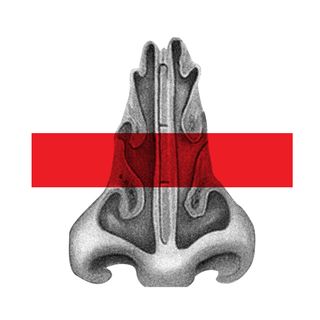Imagine you wake up one day and can’t sip your favorite wine without breaking into hives, or worse, have difficulty breathing, or fear passing out. It’s an affliction people wouldn’t wish on their worst enemy, but yes, there is such a thing as an alcohol allergy, and science says it can develop at any point in a person’s life. It’s characterized by allergic reactions to consuming even small amounts of alcohol at a time.
Let’s take a minute to mourn.
Now, a trueallergy to alcohol is actually quite rare. What most people experience is either an allergic reaction to the components within alcoholic drinks, or digestive issues that make processing alcohol difficult — collectively deemed alcohol intolerance.
What are the symptoms of an alcohol allergy?
When a person has a true alcohol allergy (to alcohol itself), even small amounts of alcohol can kickstart a severe reaction. It’s because the body’s immune system creates antibodies to fight a perceived threat — in this case, alcohol — which then cause allergy symptoms in the body. This is characterized by itchiness of the mouth, eyes, nose, or skin, swelling of the face, dizziness, nausea, vomiting or diarrhea, difficulty breathing, nasal congestion, and even loss of consciousness. These symptoms need to be treated by a doctor immediately, as they can worsen without treatment.
Related on The Swaddle:
Alcohol Abuse Is a Spectrum, From Social Drinking to High-Functioning Alcoholism
What about other allergies to ingredients within alcohol that cause alcohol intolerance?
What people’s bodies usually react to are histamines (chemicals found in wine and beer, for example) and sulfites (preservatives in wine and beer), not true alcohol. A histamine (present in red wine, specifically) allergy, for example, manifests as itchy skin, nasal congestion, shortness of breath, or diarrhea. A sulfite (present in white wine, specifically) allergy, which can also exacerbate asthma for those already afflicted, also manifests as a common histamine reaction. Other ingredients people could be allergic to include yeast, wheat, or grapes. These resemble allergy symptoms but are actually grouped under alcohol intolerance, alongside issues digesting alcohol.
What are the symptoms of alcohol intolerance?
Aside from allergic reactions to alcohol ingredients, which can manifest as sneezing, itching, etc., alcohol intolerance can also present when the body is unable to properly process the alcohol. This is because alcohol gets broken down in the body by an enzyme called Aldehyde dehydrogenase (ALDH2) in the liver. If a person has low concentrations of this enzyme (due to a genetic variation), it prevents the body from digesting the alcohol thoroughly. The symptoms include headache, nausea, and vomiting — these are often confused for a hangover, but the true difference between intolerance and hangover is when the symptoms occur. For the former, it’s during drinking, for the latter, it’s usually after.
How do you treat alcohol allergy and alcohol intolerance?
For anyone with an alcohol allergy, the only way to avoid severe symptoms is to refrain from drinking altogether. If, by any chance, what the person is allergic to is not alcohol, but ingredients common in drinks — such as wheat, yeast or grapes — then changing drinks can work. Anti-histamines have also been proven to work for those experiencing an allergic reaction to histamines. For more severe symptoms, doctors are known to give epinephrine injections to negate the allergic reaction.
For alcohol intolerance, medications that can treat headaches, nausea, and vomiting have been found to work. Although the one-size-fits-all solution would just be to drink in moderation or abstain altogether.




